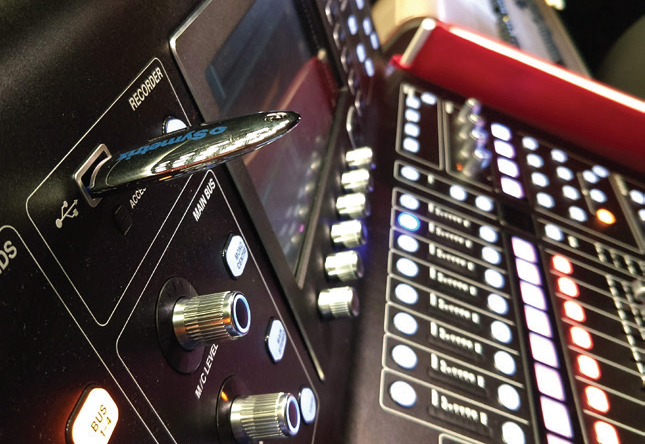
If I were unceremoniously fired or relieved of my duties for whatever reason, and a new engineer came in to take over, I would certainly not willingly offer my hard work to them carte blanche. I would feel even less likely to hand my show file over if it was demanded that I do so.
Further, if I were to quit working for an artist because of personality issues or conflicts with management or the artist, I would also not want to pass along my show file. So my feelings on this seem to be mostly wrapped up in what type of relationship parameters are happening. Is it a good split or a bad split?
I don’t believe that a manager or artist has the right to demand that you surrender a show file no matter the situation. If they kindly ask for it and explain that it will help the artist to have a successful next show, I can see how in good integrity you may want to help out, especially if some kind of severance pay was being offered.
A follow-up thought: I’ve known engineers who, when mandated to “hand over the goods,” will create all kinds of chaos in the show file, so that the next person who loads it into the console has a nightmare of strange patching and processing booby traps meant to cause nothing but problems. In other words, careful what you wish for!
ML: Excellent points, and I agree – this is an ethical/moral/professional issue, and so a legal “solution” might not be a proper and fitting resolution. As you point out, it’s very situation dependent, something that laws are not good at.
I also think there’s a distinction to be drawn here – there’s an install company up in my neck of the woods that will lock down the DSPs that are installed in venues, and the company refuses to give out the passcode, even to the people who paid for and bought the equipment. This is a different case entirely, in my opinion, because it’s sort of holding the owner’s gear hostage.
We can all understand not wanting someone unqualified having access to a system’s DSP – but if customers buy it from you, it’s theirs and it’s not right to not allow them to operate their own equipment as they see fit. I think this is the difference between selling a product and selling a service.
JY: This sidebar about purchasing a system and the seller locking out the owner “for their own good” is another interesting thread in the benefits and rights of ownership – and again, it’s a scenario that might be flexible depending on the situation.
If the venue that purchased the equipment had very little experience operating the gear, then the lockout very well may be in their best interest, but if there’s a technical director or production person on staff with enough background knowledge to be able to make small tweaks to the system and troubleshoot problems, I would say that the install company locking them out is totally unfair and bad business practices.
This circles back again to show file “ownership.” If you create a show file that works great for the artist, but then management (and perhaps the artist) believes they can fix their bottom line by hiring someone else who is going to start with that file, then I think we have a problem. If you]re being paid as a consultant only, someone who spins up a great mix and then passes it on to another person who will operate on the tour, that’s one thing, but to send an experienced engineer packing after creating a very nice bit of “console magic” with the assumption that this person’s hard work is now their property is not at all cool.
Again, each scenario and request for my show files comes from a different angle, so I feel engineers should be able to weigh each request and do what they think is best.
An Attorney Weighs In…
As we explored the professional and ethical aspects of this issue, we became increasingly curious about the legal aspects as well. We reached out to intellectual property expert Todd J Braverman, an attorney with the international legal firm Pearl Cohen, and he graciously talked us through the relevant points of console show file IP.
“Unless it’s a ‘work for hire’ agreement, where the employer owns works created within the scope of employment, the mixing engineer is hired as an ‘independent contractor,’ e.g., like a wedding photographer, with the tour. The engineer is hired to provide a professional service, not information, and owns the work (‘show file’) created. The file itself is part of the engineer’s artistic process, and not something the tour management could compel the engineer to surrender.”
The authors thank Mr. Braverman for his time and counsel, and he can be reached at [email protected].
